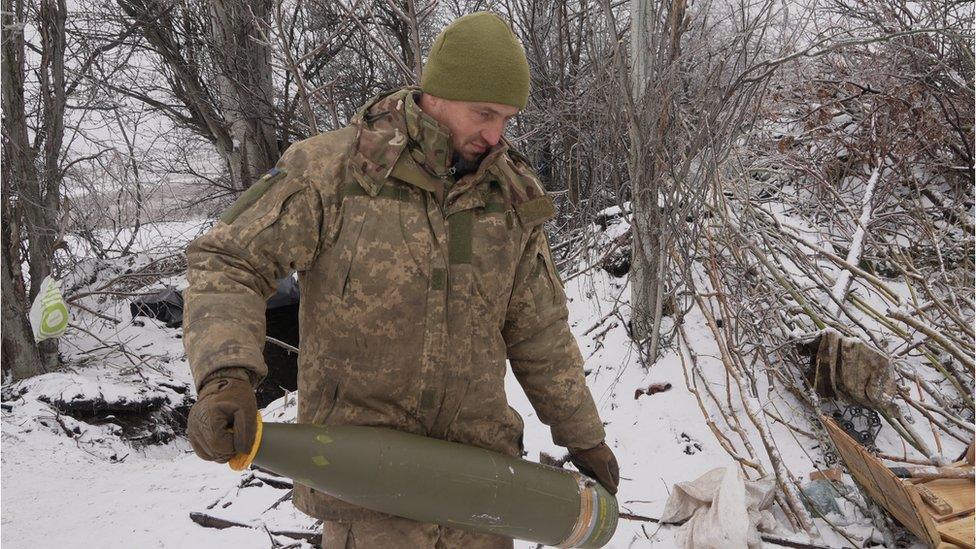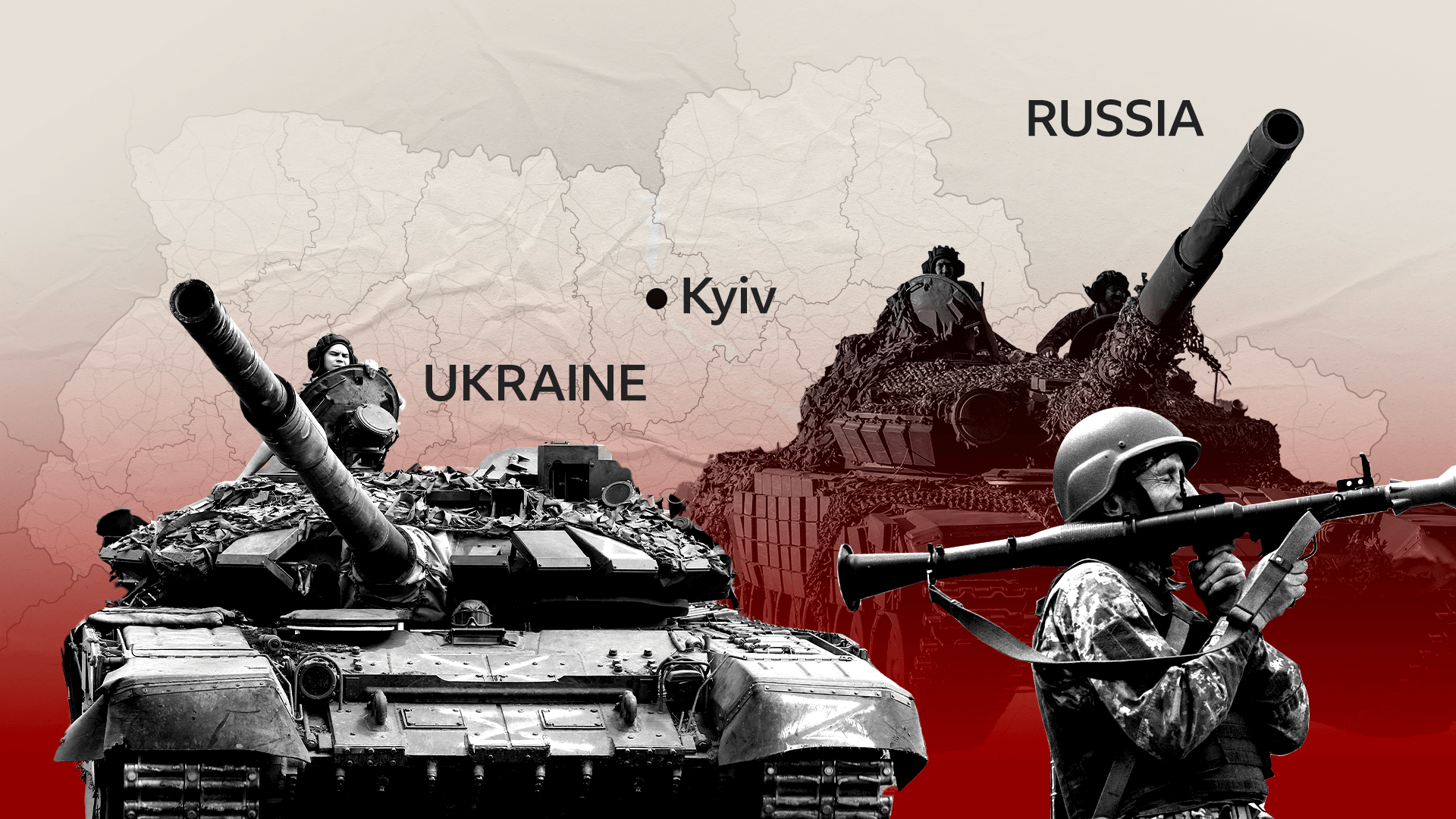Nato allies reject Emmanuel Macron idea of troops to Ukraine
- Published
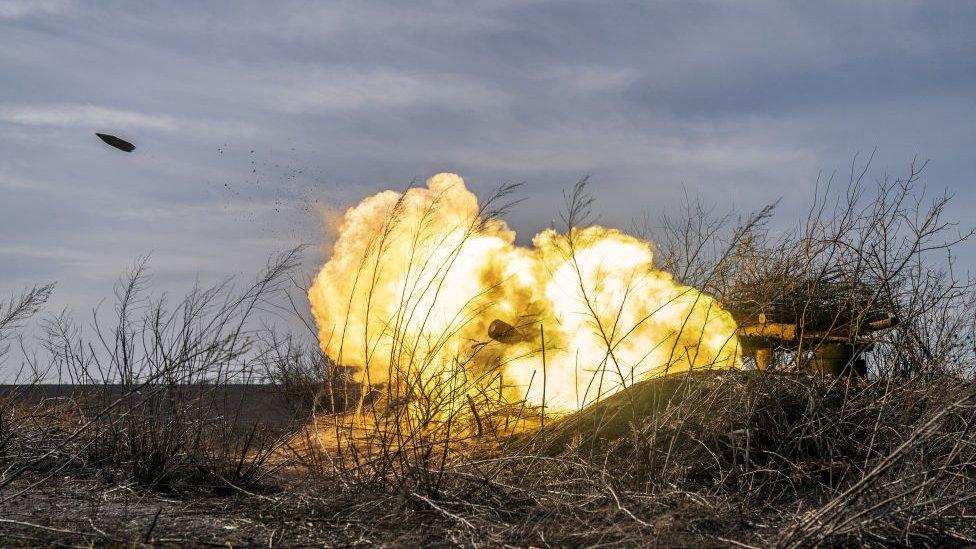
Several Nato countries, including the US, Germany and the UK, have ruled out deploying ground troops to Ukraine, after French President Emmanuel Macron said "nothing should be excluded".
Mr Macron said there was "no consensus" on sending Western soldiers to Ukraine.
Kremlin spokesperson Dmitry Peskov has warned of direct conflict if Nato troops deploy there.
Russian forces have recently made gains in Ukraine and Kyiv has urgently appealed for more weapons.
Mr Macron told a news conference on Monday evening: "We should not exclude that there might be a need for security that then justifies some elements of deployment.
"But I've told you very clearly what France maintains as its position, which is a strategic ambiguity that I stand by."
The French leader was speaking in Paris, which is hosting a crisis meeting in support of Ukraine, attended by heads of European states, as well as the US and Canada.
A full-scale invasion of Ukraine launched by Russian President Vladimir Putin is now in its third year, with no signs that the biggest war in Europe since World War Two could end soon.
Mr Macron's comments prompted responses from other European and Nato member countries.
US President Joe Biden believes the "path to victory" is providing military aid "so Ukrainian troops have the weapons and ammunition they need to defend themselves", a White House statement said.
"President Biden has been clear that the US will not send troops to fight in Ukraine," it added.
German Chancellor Olaf Scholz said there had been no change to the agreed position that no European country or Nato member state would send troops to Ukraine.
UK Prime Minister Rishi Sunak's spokesman said the country had no plans for a large-scale military deployment to Ukraine, beyond the small number of personnel already training Ukrainian forces.
The office of Italian Prime Minister Giorgia Meloni said Italy's "support does not include the presence of troops from European or Nato states on Ukrainian territory".
Mr Peskov, on behalf of the Kremlin, called Mr Macron's suggestion "a very important new element" adding it was absolutely not in the interests of Nato members.
"In that case, we would need to talk not about the probability, but about the inevitability [of direct conflict]," he said.
Earlier, Nato secretary general Jens Stoltenberg denied considering whether troops would be sent to Ukraine, although he insisted the alliance would continue to support Ukraine, which is not a Nato member.
That position has been echoed by a number of Nato member states including Spain, Poland and the Czech Republic.
Russia has an abundance of artillery and is a far bigger military force than Ukraine, whose troops are critically dependent on modern weapons being provided by Western allies, particularly the US.
'Most intense' meeting
On Tuesday, Mr Biden urged congressional leaders to approve $95bn (£75bn; €87.5bn) US aid package, which includes $60bn for Ukraine, during a meeting in the Oval Office.
The package has been facing an uphill battle in the US House of Representatives. Republican House speaker Mike Johnson held firm in the meeting insisting on more border reforms first.
Mr Johnson has said the crisis on the Mexico-US border is his priority and Mr Biden had already offered to include the reforms in the package - but the Republicans are holding out.
Senate Democratic Majority Leader Chuck Schumer said it was the "most intense" Oval Office meeting he had ever been part of.
The US is by far the largest contributor of military aid to Ukraine and had committed €42.2bn (£36bn; $45bn) as of 15 January, Kiel Institute data showed.
Germany ranks second with commitments of €17.7bn in the same time period, followed by the UK which provided €9.1bn of military aid.
Ukrainian President Volodymyr Zelensky, who took part in Monday's meeting in Paris by video link, said that "everything we do together to defend against Russian aggression adds real security to our nations for decades to come".

How significant are Russia's recent gains on the battlefront? Listen to the latest episode of Ukrainecast on BBC Sounds

Related topics
- Published25 February 2024
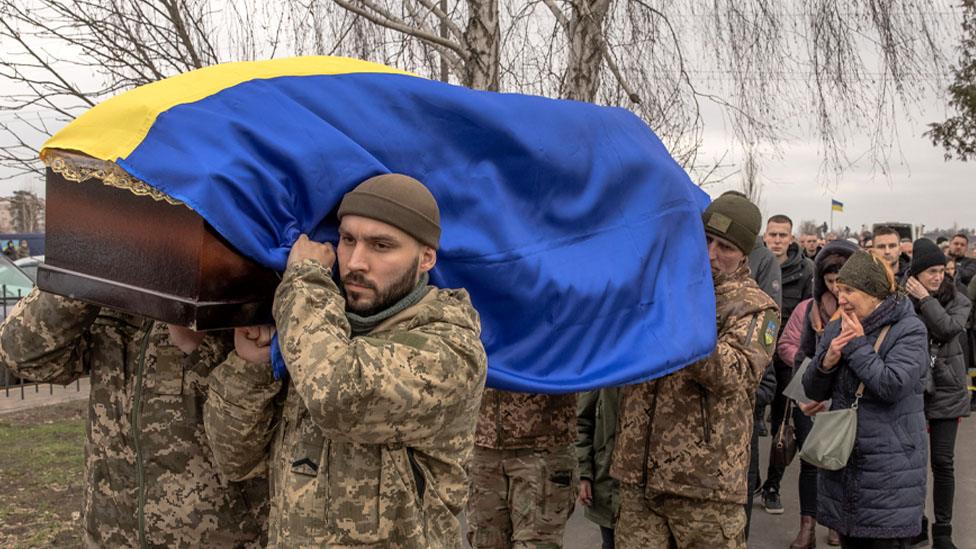
- Published24 February 2024
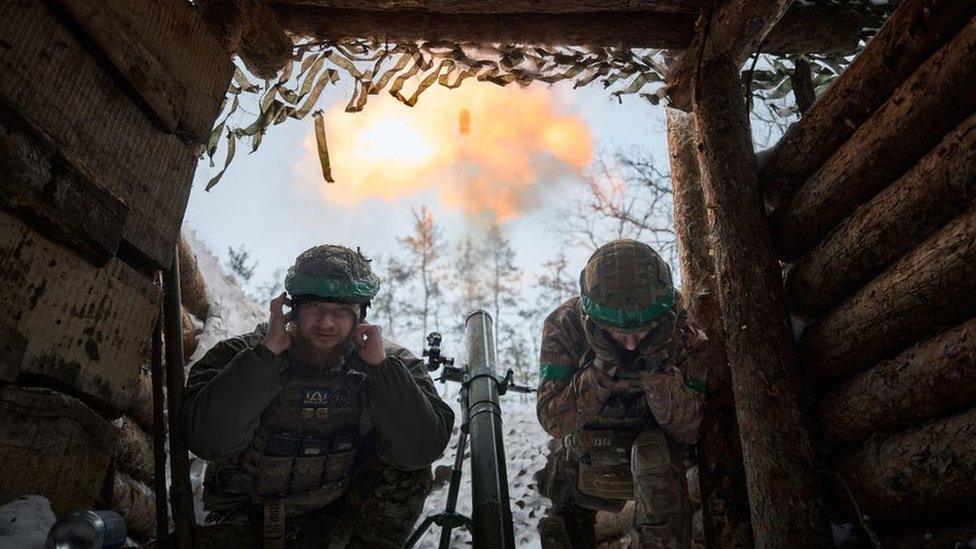
- Published24 February 2024
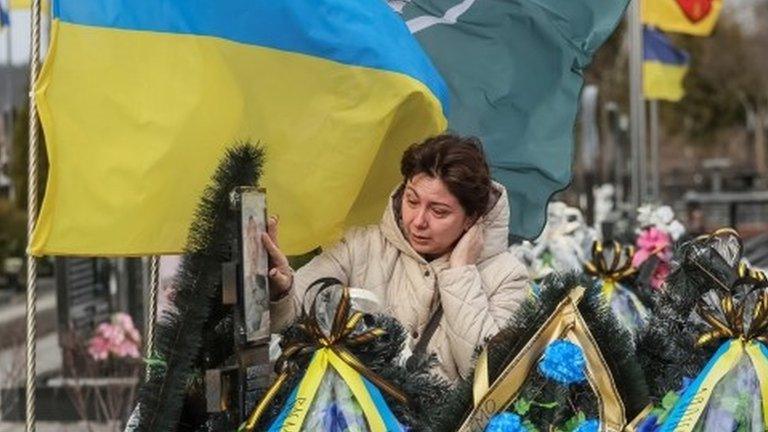
- Published22 February 2024
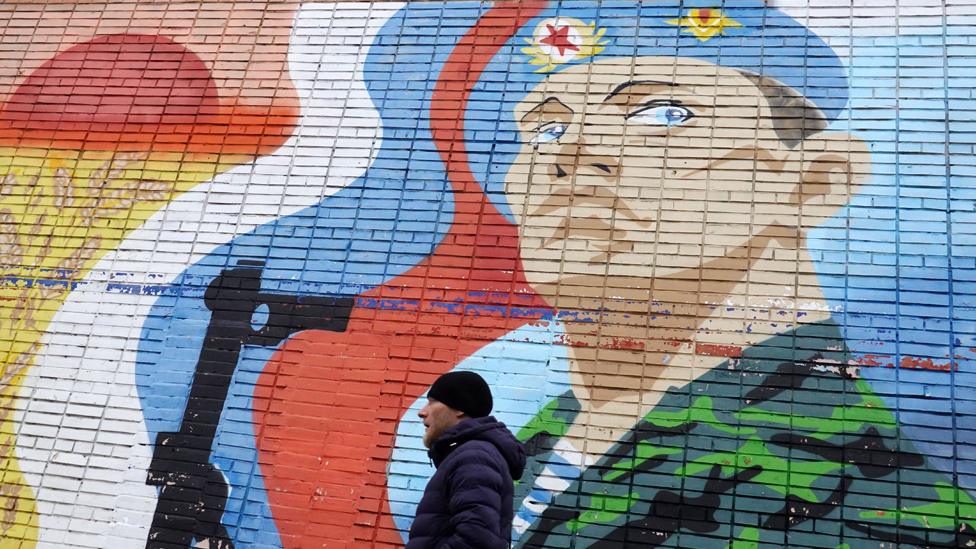
- Published18 February 2024
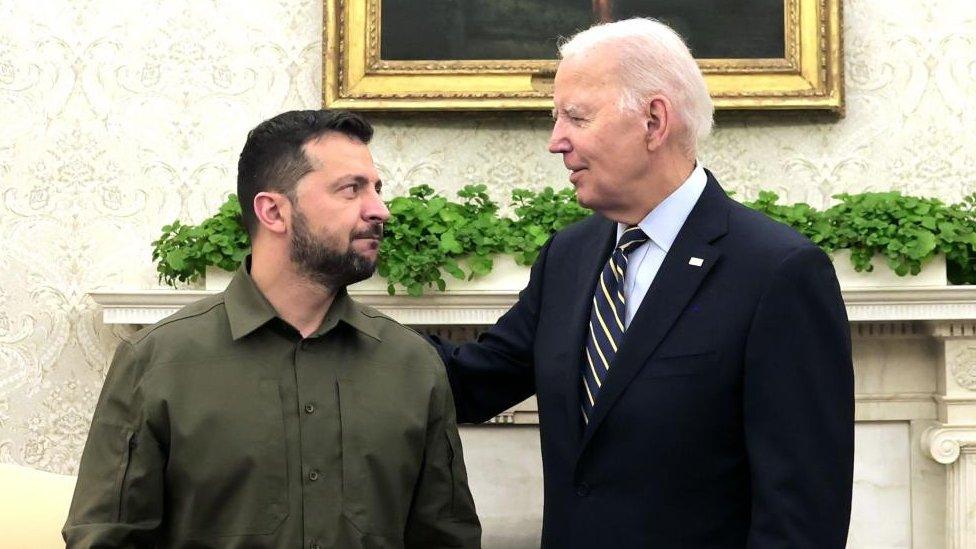
- Published14 December 2023
